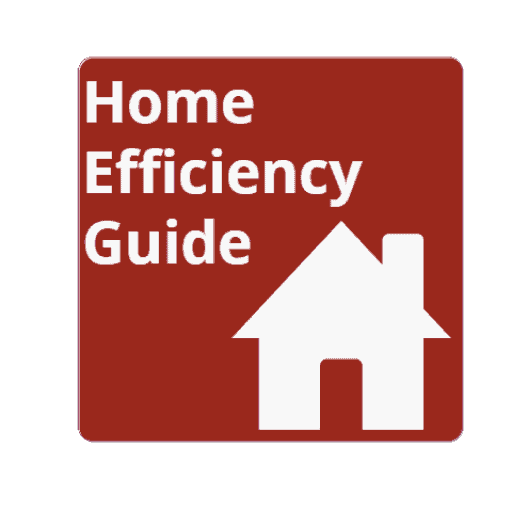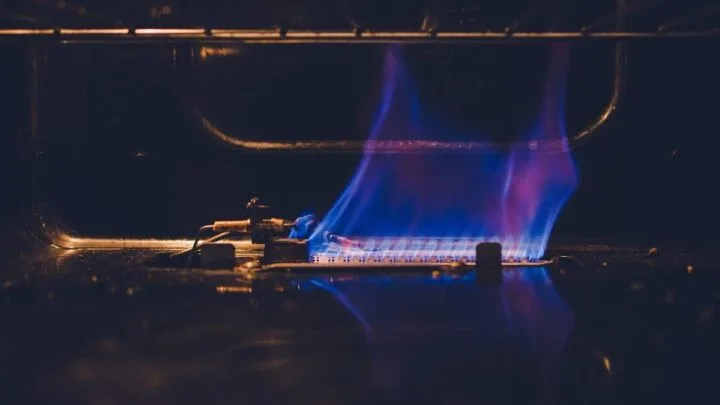Many people prefer to have gas ovens in their homes. However, if you don’t understand why your oven isn’t working, it can lead to some frustrating cooking sessions. If you own a gas oven and are having trouble keeping it on, there are a few reasons why you may be having issues.
Your gas oven could be turning off because its ventilation system is blocked. Additionally, your gas ignitor could be damaged or failed to light, you could have a broken thermostat, or you may be low on gas. Finally, your gas line may be blocked.
After a long hard day at work, the last thing you need is to have your oven refuse to work while trying to cook dinner. So keep reading this article to figure out why your oven is turning off on you when you need it most.
Your Oven’s Ventilation Could Be Blocked
Did you know that your gas oven has a ventilation system? A blockage in the ventilation system is one of the most common reasons gas ovens seemingly turn off on their own.
Oven vents bring in cool air from the surrounding environment to cool themselves down. An overheating oven is a quick recipe for a fire.
Luckily, most ovens have automatic trip systems that will turn your oven off if it cannot properly cool itself. While this is a great safety feature to have, it can be a little annoying if it is turning off your oven when it isn’t overheating!
A blocked vent could be signaling to your oven that it is overheating when it isn’t. So, keeping your vent clear of debris will help keep your oven from shutting off unnecessarily.
How To Unblock Your Oven Ventilation
The great news is that it is nearly effortless to clean an oven vent. Start by unplugging everything so that you don’t hurt yourself during the cleaning process. Then, all you have to do is wipe away any build-up with a rag, and your oven should be good to go!
Your Oven’s Gas Ignitor Could Be Damaged or Unresponsive
Another common issue in gas ovens is a faulty ignitor. The ignitor is the element inside your oven that sparks. This spark, in turn, lights the gas and causes your oven to heat up.
A faulty ignitor is a problem because it won’t light your oven and can cause it to shut off on its own.
It is pretty easy to diagnose a damaged gas ignitor. The ignitor will typically glow with heat before igniting the surrounding gas. If the element isn’t glowing or isn’t sparking, you have a faulty ignitor.
Fixing a Damaged Gas Ignitor
Unfortunately, if the gas ignitor has failed, you will most likely need to replace the whole part.
A professional can easily replace this part for you. Hiring a technician to fix your oven will likely cost around $200.
If you choose to replace the ignitor yourself, you will be able to save some money. The part itself is usually less than $100, and installation is pretty simple. There are a ton of step-by-step instructions online that walk you through the process.
You can check out this video on YouTube from Sears PartsDirect to see how to replace your oven’s ignitor on your own:
Your Oven Has a Broken Thermostat
Your oven may also be shutting off because it has a broken thermostat. The thermostat is the device that switches your oven off once it gets to the desired temperature.
Thermostats are great because they allow you to preheat your oven without allowing it to overheat. However, a faulty thermostat can cause your oven to turn off prematurely.
If your oven won’t heat up properly, but your stove is working just fine, that may be a sign that you have a broken thermostat.
Replacing a Faulty Thermostat
If you suspect you have a broken thermostat, you may want to give a professional a call. The technician will determine if you need a replacement part. They may also be able to decide on an easier and cheaper solution to your problem.
You’re Getting an Improper Gas Supply
There is one thing that you need if you have a gas oven in your home: a gas supply!
Without a gas supply, none of your appliances that run on natural gas, including your gas oven, will work properly.
Your oven’s gas line can become partially blocked by debris, which can disrupt the flow of gas to your oven. You may also be having gas supply issues from your gas tank or a clog somewhere else in your home. Additionally, you could just be out of gas!
Fixing a Gas Supply Issue
If you think you may be experiencing a gas supply issue, the first thing to do is determine if your stove is being fed by a gas tank or from your house’s main supply.
If your oven is pulling its gas from a tank, you will need to check the tank’s levels. If your gas tank is empty, you will need to call your natural gas provider to refill your supply.
On the other hand, if you use your home’s main supply line, there may be a clog somewhere in your gas line. A clogged gas line can be hazardous, so you should call your gas company right away (source).
Final Thoughts
Gas ovens have many systems built in to help ensure the safety of you and your family. However, the automatic shut-offs can be frustrating if it isn’t due to a safety concern but rather a faulty or damaged part.
If your oven keeps shutting off on its own, one of these four reasons could be why:
- You may have a blocked ventilation system.
- You may have a broken gas ignitor.
- Your thermostat might be faulty.
- Your gas supply may be low or blocked.
Recommended Reading:
Lower Gas Bill In An Apartment: Real Strategies That Work
Recommended Energy Saving Products
As a homeowner, I am constantly experimenting with making the structure of my house more energy-efficient, eliminating pests, and taking on DIY home improvement projects. Over the past two decades, my family has rehabbed houses and contracted new home builds and I’ve learned a lot along the way. I share my hard-learned lessons so that you can save time and money by not repeating my mistakes.

